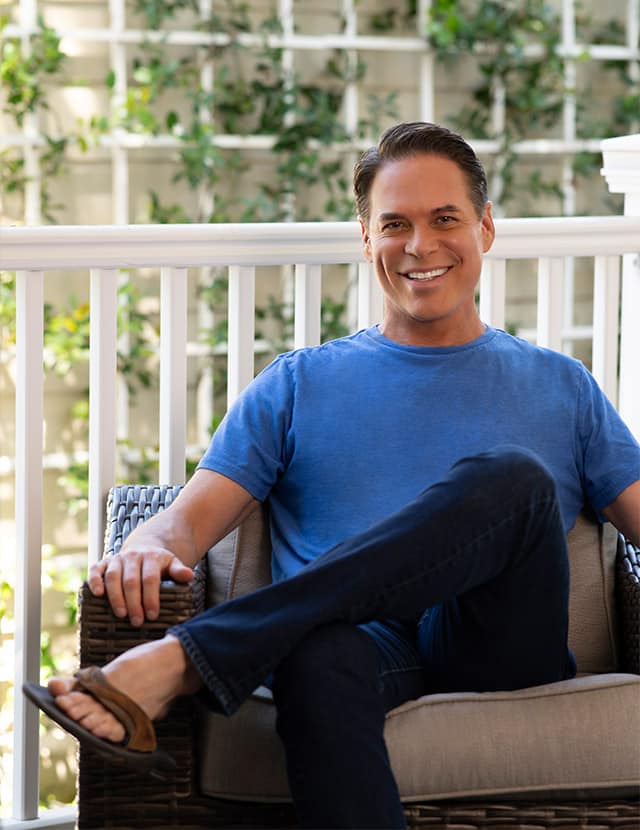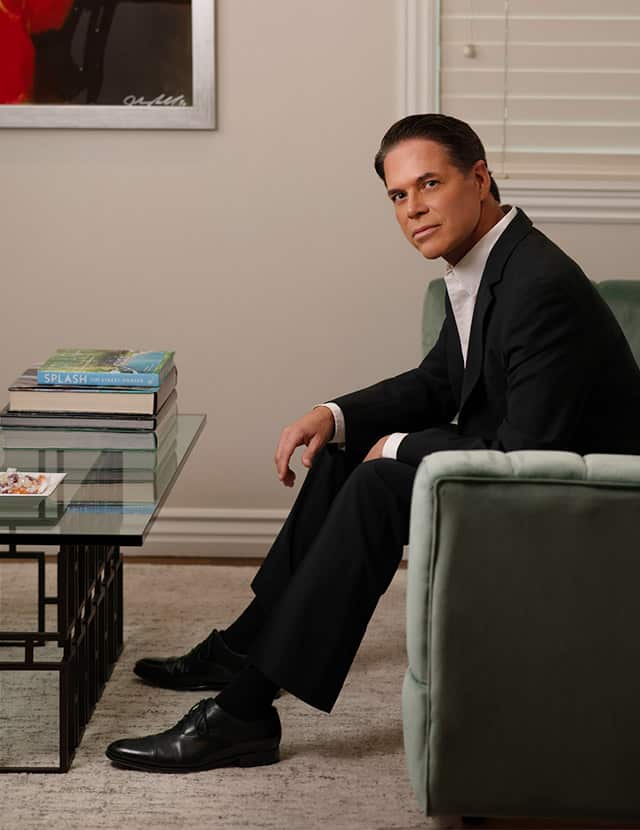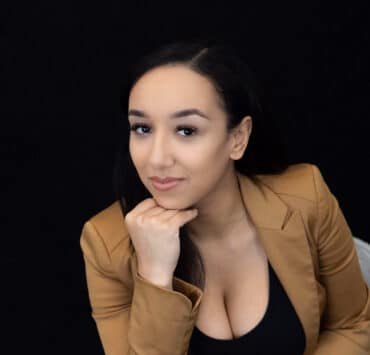|
Getting your Trinity Audio player ready...
|
Community is critical for LGBTQ youth, especially those growing up in a toxic religious environment. Jorge Valencia knows that fact all too well.
A first-generation Mexican American, Valencia grew up Mormon in a small Texas town. He didn’t have any LGBTQ role models, his religion said being gay was a sin against God, and there was the machismo definition of who a man should be.
“It created this toxic understanding of masculinity for me: that you had to chase women, be aggressive, and hide your feelings,” Valencia says. “Between the religious damning of LGBTQ identities and the toxic masculinity, the thought that I might be gay was something that was very worrisome and scary for me.”
It wasn’t until his first job out of college that he came out and found both community and support. And it’s his own experiences that drive his career today as the executive director and CEO at the Point Foundation, where he has been since 2007.
The Point Foundation, based in Los Angeles, empowers promising LGBTQ students on their journey to achieve both academic and leadership potential. It’s the largest scholarship-granting nonprofit for LGBTQ students in the US.
“My North Star is young people who are growing up in oppressive environments,” Valencia says. “That is what leads me to advocate for and empower the LGBTQ youth of today who will serve as role models and be a symbol of hope for others who don’t have support in their respective communities.
Valencia spoke with Hispanic Executive about the work the Point Foundation does, how educational institutions can better support LGBTQ students, and the legacy he wants to leave behind.

What were some of the key points of your early career that led you to the nonprofit world and serving the LGBTQ community through the Trevor Project and now at the Point Foundation?
When I look at my career path in the LGBTQ space, the decision to serve at the Trevor Project and Point Foundation came from a very personal place. The Trevor Project is the nation’s largest suicide prevention helpline for LGBTQ individuals, and Point Foundation is the largest scholarship-granting nonprofit for LGBTQ people.
Before I accepted my gay identity, I didn’t feel my life was worth anything. I didn’t think I’d be accepted for who I was or that I’d be able to contribute anything to society. When family and communities tell you you’re not worth anything, it influences how you feel about yourself. So, when I finally came out, the prospect of saving just one life motivated me to join the Trevor Project.
Similarly, education opened a whole world of opportunities for me. I decided to work with Point Foundation because I knew they cultivated the LGBTQ role models that I didn’t have growing up. The people Point serves are the leaders who could end up saving young LGBTQ lives down the road.
How does Point Foundation recognize the diversity and intersections within the LGBTQ community when building programs and resources?
More than 88 percent of the students we support are people of color, and more than 52 percent are first-generation students, so intersectional identities are a focus of our programming and services. To ensure we are meeting the current needs of diverse communities, we first do research. We also survey those we serve and listen to their needs. Then we test pilot programs to make sure our programs fit the needs of our students. And we partner with other organizations in our efforts to better understand and recognize diversity in our communities, resulting in programs that help young people with intersecting identities.
As an example, our mentoring program has evolved over time because the needs of the people we are serving changed. Through research and testing, we found that one-on-one mentoring wasn’t working for every student. When we put students together in groups, with more than one mentor, they feel it’s a better space for open dialogue alongside people that make them feel like they belong.
To this day, many cultures aren’t ready to take the necessary steps toward acceptance of the LGBTQ community. To address this, we are actively working with scholarship organizations that serve communities of color to help them understand the unique needs of LGBTQ students.
What role do you see educational institutions playing in safeguarding the rights and well-being of LGBTQ students? How can they partner with the Point Foundation to do so?
Many of the scholars that we support worked really hard on their grades in order to get into institutions of higher education where they believed that they were stepping into more accepting environments than their home communities. Sadly, they find that these institutions of higher education aren’t as safe as they might have believed. Our studies, in partnership with the Williams Institute, found that LGBTQ individuals are twice as likely to report mistreatment from administrators and staff compared to their non-LGBTQ peers. In addition, LGBTQ students are also three times as likely to report poor mental health while in college.
In summary, LGBTQ students are graduating with more loans, more debt, reporting more harassment from administrators and staff, and reporting worse mental health than their non-LGBTQ peers. This means there’s a lot that higher education institutions can do to better serve the LGBTQ community.

To start, higher education institutions can use resources developed by LGBTQ institutions to improve their support of the LGBTQ community. Point Foundation has guides that provide steps that can be taken to create safe environments for students.
Establishing gender-affirming bathrooms is a step toward LGBTQ student safety, given that 30 percent of transgender students say they’ve been denied access to gender-affirming bathrooms, which is a basic human right.
Institutions can also partner with Point Foundation not only by using our guides but also by reaching out to us and working with our students who are on their campuses and eager to create inclusive policies.
What are three easy ways allies can support LGBTQ youth all year round?
We know that in the last two years, the attacks against the community have increased substantially across the board, especially in terms of anti-LGBTQ state laws. Now is the time for allies to turn that around and help protect the lives of LGBTQ people.
First, you can educate yourself about the history and struggles of the LGBTQ community. Second, you can listen to the needs of the community to continuously develop an understanding of the LGBTQ experience in your workplace, your friend group, and your city or town.
Lastly, stand up when you hear someone making negative comments. Even if it’s in the form of a joke, stand up for the community by rejecting those kinds of behaviors that continue to hurt the LGBTQ people around you.
What legacy do you hope to leave behind in the field of LGBTQ advocacy and higher education?
If there was any sort of legacy I would hope to leave behind, it would be to have more people recognize the enormous potential and contributions that the LGBTQ community has to offer, especially our young people.
A legacy to lift up those voices so the world can see the amazing contributions LGBTQ people are making now across our globe.
I also hope that by uplifting these voices and being open about my own experience, I can help other Latine LGBTQ individuals know that they are essential and valuable members of their communities. I want LGBTQ Latine people to know they can contribute to our society and be proud of all of their identities.

